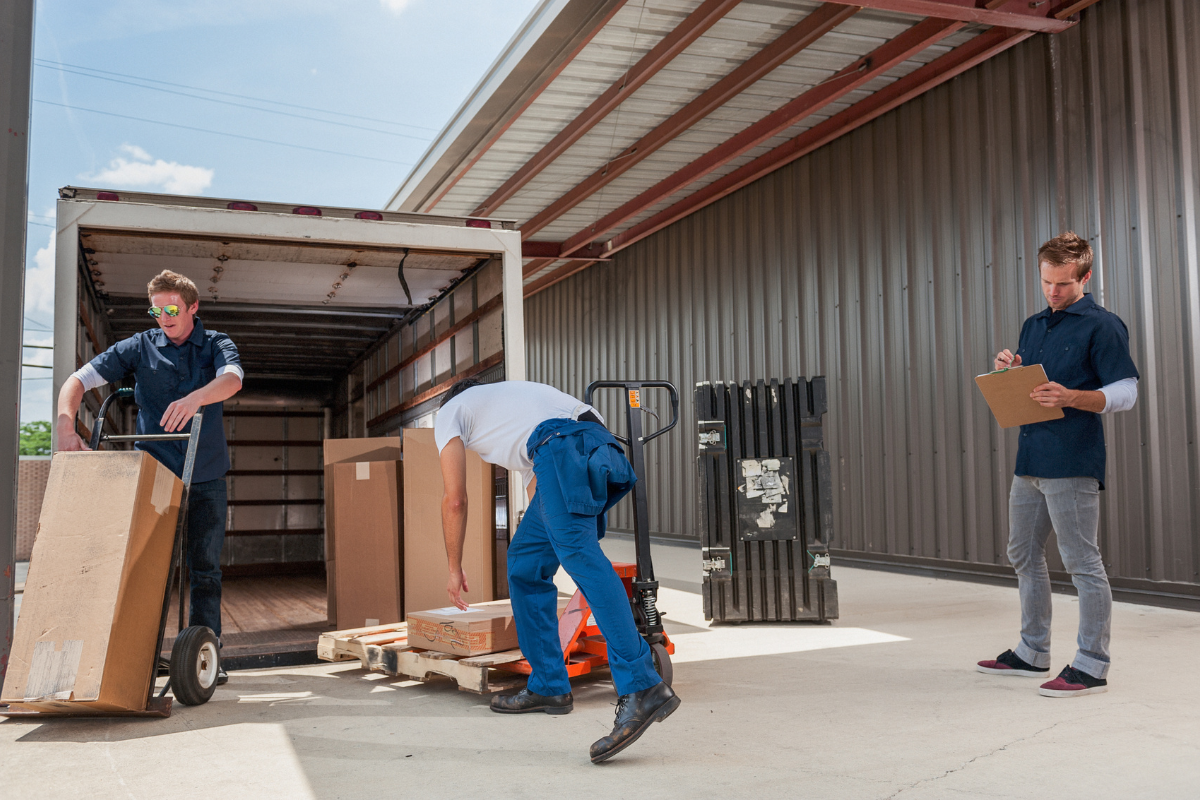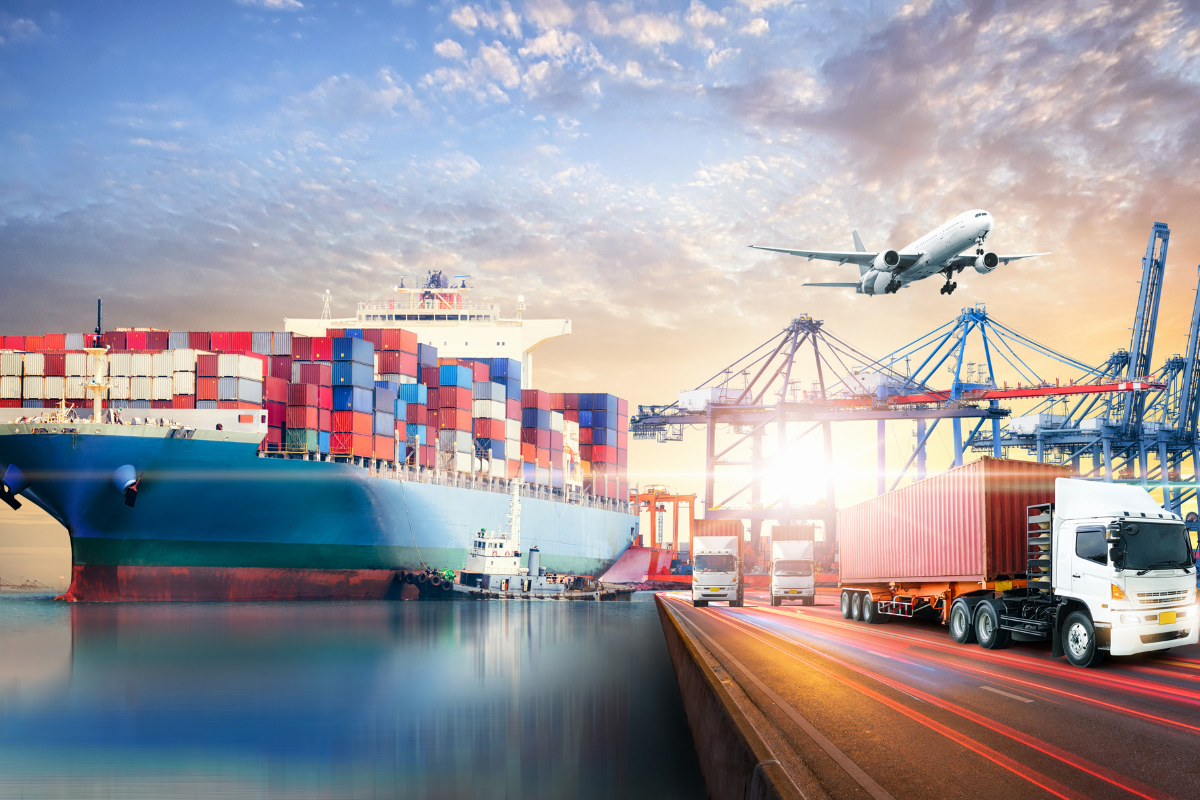Technologies are playing the lead role in every ramification of human life. It has been of help to reshaping and reconstructing the entire world into a global village. Logistic industries are not left behind in this global reconstruction.
Talking of the logistics industries, freight and logistics are the backbone of global trade, facilitating more than 80 trillion worth of goods annually.
What gives logistics industries a good reason not to lay back in these innovations? Such as embedding the use of AI, machine learning, self-driving cars, and delivery drones into planning and running logistics.
Despite this, they are, however, more effective, but it raises another whole debate on infrastructure, policy, and security.
Anyway, that is going to be another story for another day, as we will just be taking a closer look into some of the trends and as well as the technologies actively and genuinely reshaping the logistics trucking companies or industries.
E-commerce’s Dominance
E-commerce is one of the significant sources of change affecting the freight and logistics sector today.

It all started like a jungle of products, shipping lines, and postal services. E-commerce has now evolved into streamlined logistics networks that can reach every part of the world.
Similarly, big companies like Amazon and Alibaba have raised the bar for speed of delivery, reliability, and convenience, which the whole industry had to follow.
Online shopping is fast increasing, thereby making it a point of concern for logistic trucking companies to work more on how to make their services speedy and efficient.
Freights have been forced to streamline their operations as they seek to deliver goods in growing volumes without compromising other trends such as increased speed and frequency of deliveries.
Real-Time Tracking and Visibility
Real-time tracking and visibility are no longer a luxury but a necessity in the logistics industry.
Customers need to have accurate information regarding where their shipments are and what progress has been made at every instance.
Customers need to have accurate information regarding where their shipments are and what progress has been made at every instance.
Logistics trucking companies would, of course, comprehend why that might be. It offers live information and analysis, which may enhance efficiency, diminish hold-ups, and keep away from burnt or harmed packages.
With modern technology, it is now possible for real time tracking and visibility. With modern technology, it is now possible for real time tracking and visibility.
With the use of GPS, RFID, and other tracking technologies, logistics company in Canada like Shipinterlane can effectively and efficiently track their shipments from start to finish. This enables them to make better decisions on route planning, load optimization, and delivery times.
Improved Last-Mile Delivery
The technological advancements in logistics have been significant, especially concerning improving last-mile delivery.
The last-mile delivery involves transferring packages from the hub to the customer’s doorstep in the last step of the delivery process.
The second stage of a freight distribution process commonly proves even more complicated and costly because of such reasons as increased traffic, non-optimal routes, and multiple destinations along the way.
Nonetheless, emergent technologies are re-drawing this plot. For example, the evolution of route optimization software enables changes in delivery routes on a real-time basis, considering issues like traffic, weather, and high-importance packages.
These improvements are built around customer satisfaction. Business grows as customer satisfaction increases through the enhanced customer experience through faster deliveries, real-time tracking, and flexible time for the same.

Artificial Intelligence (AI) and Machine Learning
We also need to comment on how AI and machine learning contributes to improving the performance of freight logistics transport companies, particularly for the delivery to the final customer, called last mile service.
In sorting packages, predicting demand, and also detecting potential congestion points, there is a great benefit in the application of AI machines and algorithms.
The technology also supports smart routing that factors in actual conditions like traffic, weather, and customer availability to determine a perfect pathway.
Additionally, AI-based chatbots give precise delivery details and updates to customers in order to handle clients’ uncertainties regarding delivery dates and the resulting questions for human customer care agents so as to improve expectations’ management.
Sustainability and Green Logistics
We cannot overlook the aspect of environmental concerns. The logistic industries are increasingly being geared towards sustainability.
Hence, for green logistics purposes, these initiatives seek to cut emissions, lessen waste, and lower energy use.
This is an evident positive development for our planet; however, there’s also a business edge in terms of cost-cutting and consumer preferability.
As a result of these sustainable practices, firms can increase brand loyalty and gain a competitive advantage. Customers are now more likely to favor companies that adopt them.
Transportation’s environmental impact is being lessened by the increasing use of electric and hybrid vehicles in the freight sector.
In order to power their fleets, businesses are also looking at alternative fuels and energy sources like hydrogen and renewable energy.
Blockchain Technology
You can track shipments, verify authenticity, and expedite the documentation process with our decentralized, tamper-proof ledger.
Blockchain reduces disputes and fraud by ensuring that everyone involved in the supply chain has access to the same unchanging information.
That is to say, all supply chain participants have access to real-time data in a safe, unchangeable system thanks to blockchain technology. The effectiveness and precision of supply chain activities can be considerably increased as a result.
When certain criteria are satisfied, smart contracts have the ability to automate several parts of the shipping process, including payment.
Companies that embrace blockchain technology in their logistics operations may see benefits such as cost savings, improved efficiency, and increased customer trust.
Demand For Less Than Truckload (LTL)
The outburst in e-commerce and the increase in people asking for the LTL (less than truckload) option in logistics have doubled in recent years, especially after the coronavirus plague of 2019, forcing many stores to close their physical locations and move their business online.

This demand for smaller, more frequent shipments is driven by the rise of e-commerce and the need for faster deliveries to meet customer expectations.
Let’s check out some of the benefits of LTL shipping:
- Cost Savings: By only paying for the space your shipment takes up, LTL can be a more cost-effective option compared to traditional full truckload shipments.
- Environmentally Friendly: With LTL, multiple shipments are consolidated into one truck, reducing carbon emissions and promoting sustainable transportation practices.
- Flexibility: LTL carriers offer various delivery options such as liftgate, inside delivery, and appointment-based deliveries to accommodate specific customer needs.
- Real-time Tracking: With the use of technology such as GPS tracking, customers can keep track of their shipments in real time, increasing visibility and transparency.
- Reduced Risk of Damage: LTL carriers have specialized equipment and handling processes to ensure secure transportation of smaller shipments, reducing the risk of damage during transit.
- Improved Customer Experience: With faster and more frequent deliveries, LTL can improve customer satisfaction by meeting their expectations for timely and reliable shipments.
More so, technology in logistics has enhanced the efficiency of LTL operations. All this necessitates technology in every step, right from digital tracking systems and automated order processing.
Additionally, data analytics will help LTL carriers cut costs through optimized trips and maximum space use.
Final Thoughts
With such a dynamic environment, logistics companies have no choice but to keep up with these trends and technologies.
Moving goods across points will continue being more than just transport but should be done at low costs, with less environmental damage, and provide the best in services.
The development will also result in greater improvements in how cargo is moved around and delivered in the future.
Ella Marcotte
Latest posts by Ella Marcotte (see all)
- UA vs GA4: The 4 Big Differences You Need To Know - April 26, 2024
- Understanding The Role Of Control Valves In Industrial Automation - April 8, 2024
- How Automation Can Boost Your Business Outcomes - April 4, 2024




